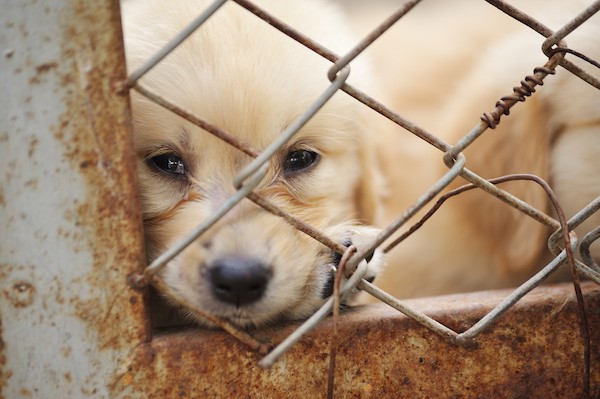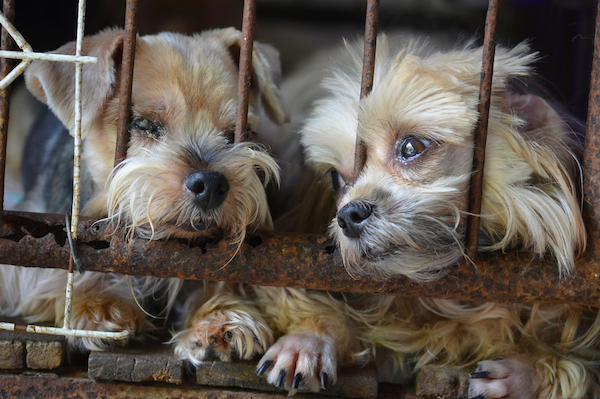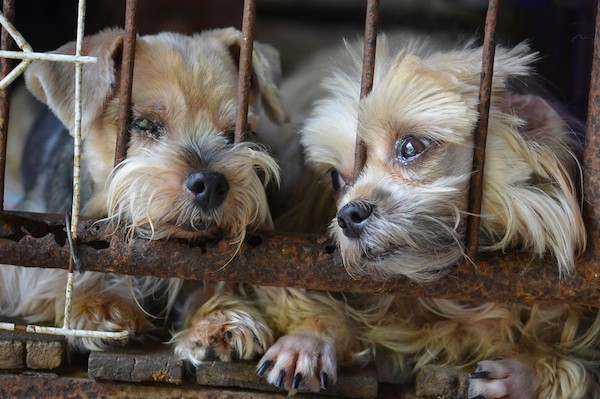Dogster writer Chris Hall recently asked the question “Can We Shut Down Puppy Mills Without Running Responsible Breeders Out of Business?” quoting in his story a past article of my own that examined the intricacies of breeding responsibly.
My answer to the above question is a very sure YES! Indeed, the time has come for this change. It will involve adapting and evolving, and there will be predictable resistance and challenges, but life will move on. It is already is doing so!

Perhaps some of Chris’ conflict (rooted in the lawsuit filed by the Puppies N Love stores, opposing Phoenix’s ban on pet store puppy sales) stems from statements made in the aftermath by Pet Industry Joint Advisory Council (PIJAC) Vice President Mike Bober, such as, “The burden of this ordinance will fall hard on a responsible pet store and the reputable breeders who raise their puppies.”
Let me challenge the first half of that. Three years ago, Rumford Pet Center (a name that is to Rhode Island pets what Kleenex is to tissues) ceased selling puppies. It was a corporate decision, not one forced by ordinance. Selling puppies is profitable, yet dwarfed by the pet industry in total (with just 2.15 billion of its 58 billion dollars being spent on live pet purchases annually), and enlightened dog owners would not set foot in their stores. Shortly after the change, Rumford reached out to area rescues to host adoption events there. We — I am co-director of the transport-based rescue Southpaws Express — were happy to oblige. This once-outdated store now mirrors the intent of the Phoenix ordinance.
As for the second half of his quote, Bober added, “It will likely hurt several federally licensed and regulated responsible breeders.” He has now called commercial, pet-store-supplying breeders both “reputable” and “responsible” — something I personally find oxymoronic and will focus on here. However, first, let me discuss a breeder who truly is such a thing and what occurred when she was forced to change due to such an ordinance.

Several years ago, my Giant Schnauzer breeder had to face a new restriction in her region that limited the number of dogs breeders may keep. She felt quite threatened by this, given her practice of keeping beautifully cared for dogs in large numbers, for genetic diversity, and for her pursuit of unearthing the next great Giant. Yet in the end, she found a solution: A large group of adults was quickly rehomed (not hard to do when you breed some of the finest Giants in the world), and today many of her females are on co-ownership, kept and shown by others, while visiting her to have one or two litters.
The moral of this story is that times are changing and industry is adaptable. We need to move forward, to a place where responsible retailers and breeders can support change for a new cultural view and make it work. Truly responsible breeders will continue to be undermined until this is done, for incautious breeding by mass producers compromises gene pools, burdens breed rescues, and sullies the reputation of breeders as a whole. The farming of dogs is viewed by many, including good breeders themselves, as unseemly. It is time to take their baby out of that bathwater and support certain changes.
It is not that dogs can’t be farmed under humane standards (minimal though they may be). But the images of grossly matted dogs with crusted eyes that capture a nation’s attention belie the ability to farm dogs reasonably. The more provocative question is if we should be doing it at all anymore. We embrace dogs as beloved family members and for their ongoing service to mankind. Many feel we owe them better than this, as underscored in this video:
It is not uncommon for mill dogs to spend their entire life in cages — this video didn’t need mats or crusted eyes to make its point.
Putting aside these emotional issues, let’s now focus more practically on the ethics of producing a substandard dog and what it costs both the animals and the consumer.
First, let me speak of the “standard” dog. This would be the “responsibly bred” puppy. Their breeders are active members of their breed club, in the loop of information exchange when it comes to health and temperament concerns. Litters are bred selectively, from assessed stock of known bloodlines and full health screenings, and the resultant puppies are raised in stable, nurturing conditions until they are ready to go to their new homes at a safe age. The breeders will be sure the puppy is a good match for her new family, and they will be there as a life-long mentor and supporter, offering their expertise whilst keeping abreast of the status of their “homebred” for ongoing genetic information.
Pet store puppies offer none of this, yet the dubious privilege of convenience finds them costing far more. They are shipped out quite young to pet stores in time for their maximum cute stage (eight weeks being a legal minimum in many states). This is short of the age considered prudent to expose puppies to unrestricted environments, resulting in a greater risk of disease and, to arm against it, the puppies being kept in unnaturally isolated conditions.

In addition to these greater risks for illness and impairment, all control of their welfare, care, and eventual sale is forfeited by their breeder. This is not defensible as “responsible and caring.” It not only compromises the puppies but prevents the breeder from knowing if the dogs they are using to breed, already deficient in the lack of health testing, are producing genetic problems — with potentially disastrous consequences for the consumers.
I have no firsthand knowledge of the Puppies N Love store, but all the above applies to them, and a simple Internet search of complaints will find they are not immune to the problems faced by puppy stores typically. Whatever the spin, they are still a puppy store, with none of their live merchandise enjoying the genetic and environmental protections afforded to dogs bred and homed responsibly.
Consumer awareness paired with community-supported ordinances seeking to limit the milling or mass production of dogs is the wave of the future. The pet store puppy sales are increasingly becoming prohibited, rescue has grown to be a thriving industry alternative, and the public is more conscious of the breed-affiliated hobbyist and of genetic testing being the benchmark for all responsible breeders. In this climate, good breeders have growing reasons to further separate themselves from puppy mills, to protect their own interests by embracing changes that discourage the mass breeding of dogs.
Read more by Lucy Ohannessian:
- A Beginner’s Guide to Finding Responsible Dog Breeders
- If You Call Yourself an Ethical Breeder, You Better Back It Up
- Hatteras, My Aggressive Childhood Dog, Is a Training Success Story










